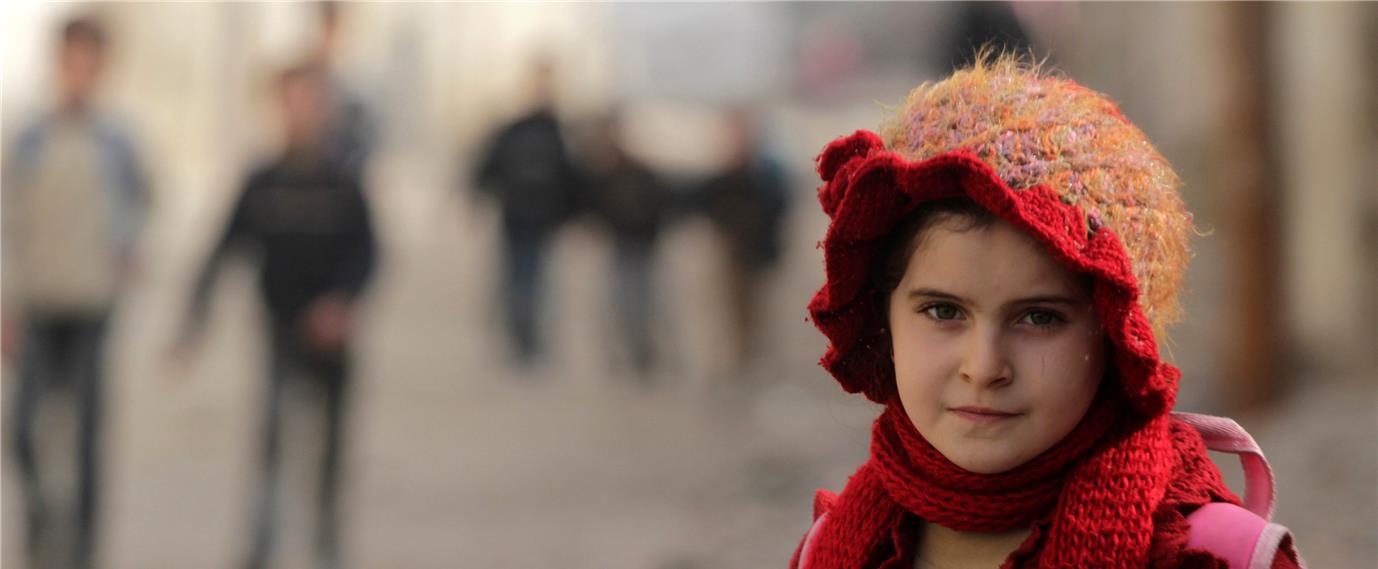إنها صور الحرب التي تخلّد ملتقطيها على مر التاريخ.. تاريخ يعج بالمعارك والمجازر والقتل كانت الكتب قديما تصوّره في حكايات ورسومات توضيحية. ولئن كانت فرضية أن التاريخ يكتبه المنتصر قابلة للتطبيق في عصر الكتابة الورقية، إلا أنها لم تعد تجدي اليوم مع وجود آلات تصويرية باتت توثق الأحداث لتكون أدلة واضحة ستستخدم لاحقا في كتابة التاريخ.
مدركا أهمية الصورة ودورها في تسجيل الهمّ والقتل والدمار والأسى الذي لحق ببلاده سوريا، إضافة لتسجيل لحظات الفرح بين ركام الأنقاض، وجد المصور السوري محمد بدرة في آلة التصوير رفيقا ليوثق المشاهد اليومية التي يعايشها في مدينته المنكوبة "دوما".
صورٌ ملتقطة بمهارة وحرفية وفي ظروف قاسية جعلت مجلة الـ"تايم" الأميركية تختار صاحبها محمد بدرة كأفضل مصور إخباري لعام 2016.
بدرة، ابن الـ 26 عاما، ترك دراسة الهندسة في دمشق إثر الحرب التي تمر بها بلاده وحوصر مع أهله في دوما ، حيث عمل مسعفاً مع الهلال الأحمر فترة وعاين بنفسه الدمار والأهوال لكنه قرر أخيرا أن تكون الصورة أداة لإسعاف التاريخ الذي ستصعّب الصورة مسألة تزييفه.
كانت مجلة التايم حسب تقريرها المنشور عن محمد بدرة قد قالت إنها تلفت الانتباه إلى المصورين السوريين الذين يعملون ليل نهار لتوثيق الصراع المعقد في بلادهم، مواجهين مخاطر عظيمة ومعاناة شخصية حتى وصفت عملهم بالـ"تاريخي".
عمل بدرة بداية مع وكالة الأنباء الإخبارية رويترز عن طريق صديقه بسام خيبة قبل أن ينتقل للعمل مع وكالة الصور الإخبارية الأوروبية حيث سيتعاون مع مسؤوله أوليفر وايكن، في تحديد خيارات جديدة للتصوير في منطقته التي تعرضت للدمار ومع هذا فهي تقتنص لحظات فرح من حين لآخر.
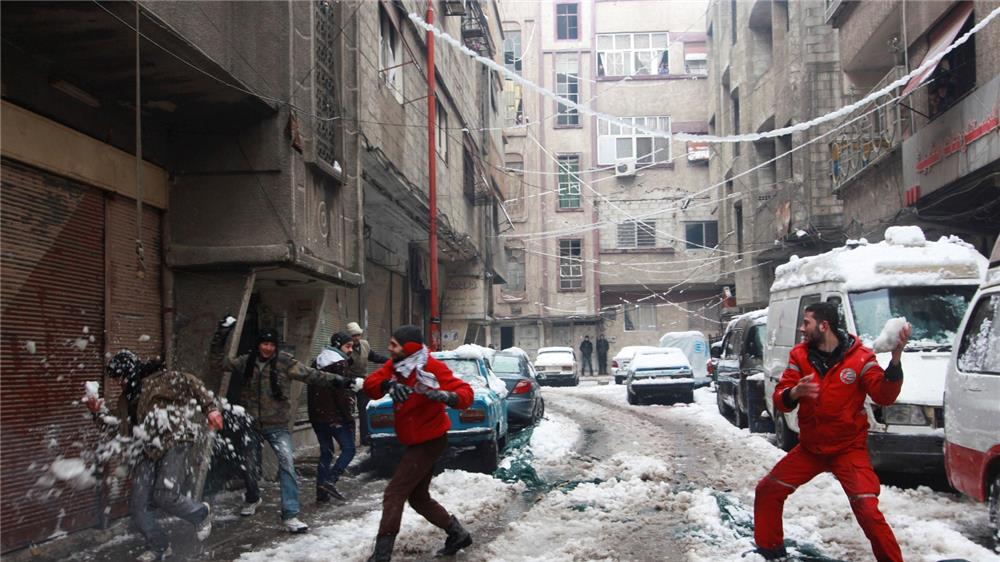
كان التركيز في تلك المرحلة –حسب التايم- لأصغر ضحايا الحرب وأكثر فئة متضررة وهم الأطفال، الذي يقول عنهم بدرة للتايم إنهم باتوا بلا حاضر ولا مستقبل بل بماض مليء بالدم والقنابل. وبحسب المصدر ذاته، فقد قدرت الأمم المتحدة وجود 300 ألف طفل يعيشون في 16 منطقة حربية في سوريا. وفي سبيل ذلك فقد قضى بدرة وقتا في متنزه تحت الأرض حيث العشرات من الأطفال يستمعون لأغان ويلعبون في مدرسة مدمرة، كما صوّر في عدد من المستشفيات المليئة بالجرحى والقتلى.
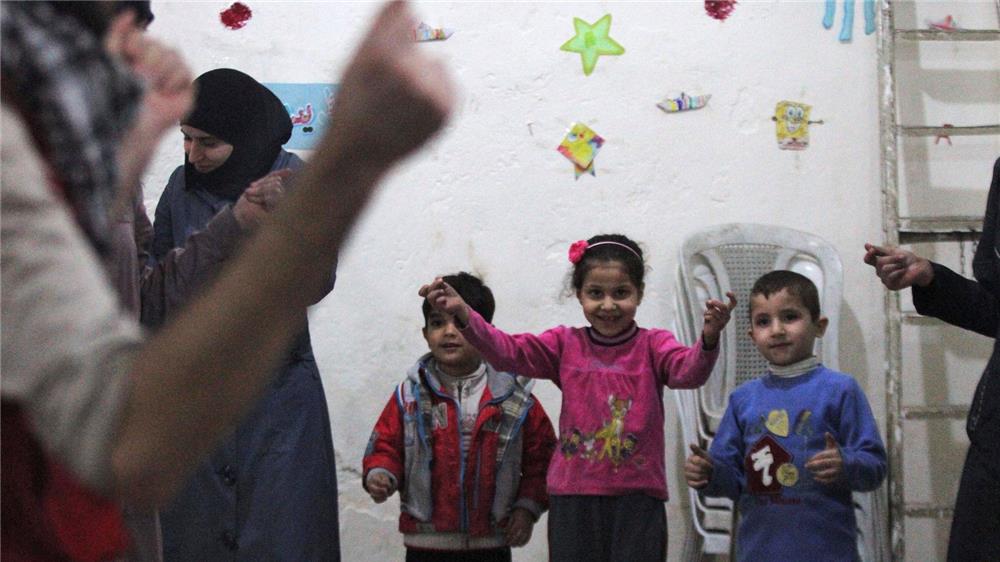
صور بدرة لها بعد آخر، فملتقطها هو ابن البيئة ويمر بنفس الظروف التي يمرّ بها أبطال صوره، وهو قريب منهم ولربما سمح له ذلك بالاقتراب منهم أكثر وتصوير تفاصيل إنسانية في حياتهم.
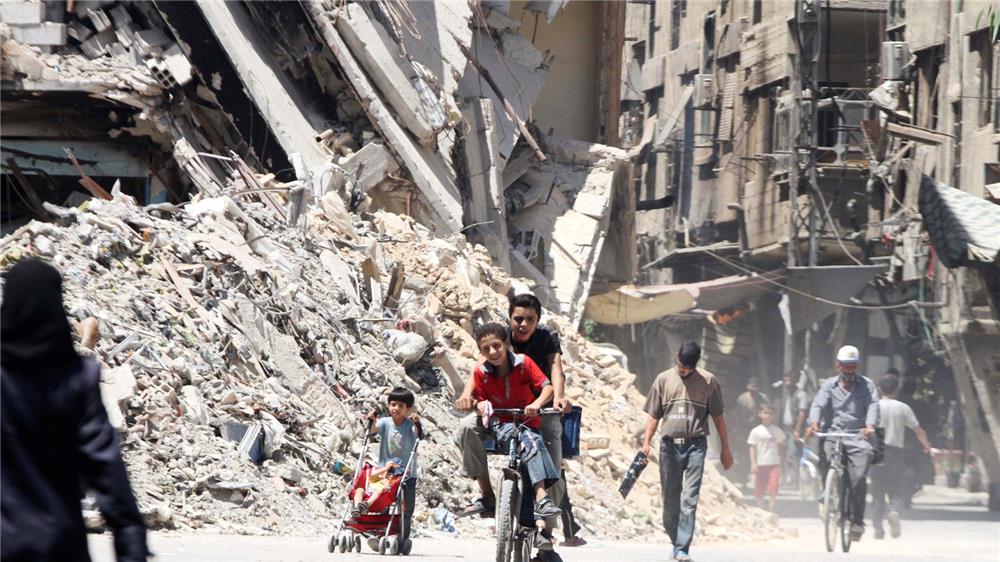
القصة الإخبارية يحكيها بدرة عبر الصور، وهو الذي حصل على جائزة المراسل الشاب " فئة الصورة" من وكالة "كابا" خلال عمله في وكالة الصور الأوروبية عن قصة "سوريا، أولئك الذين ما زالوا".
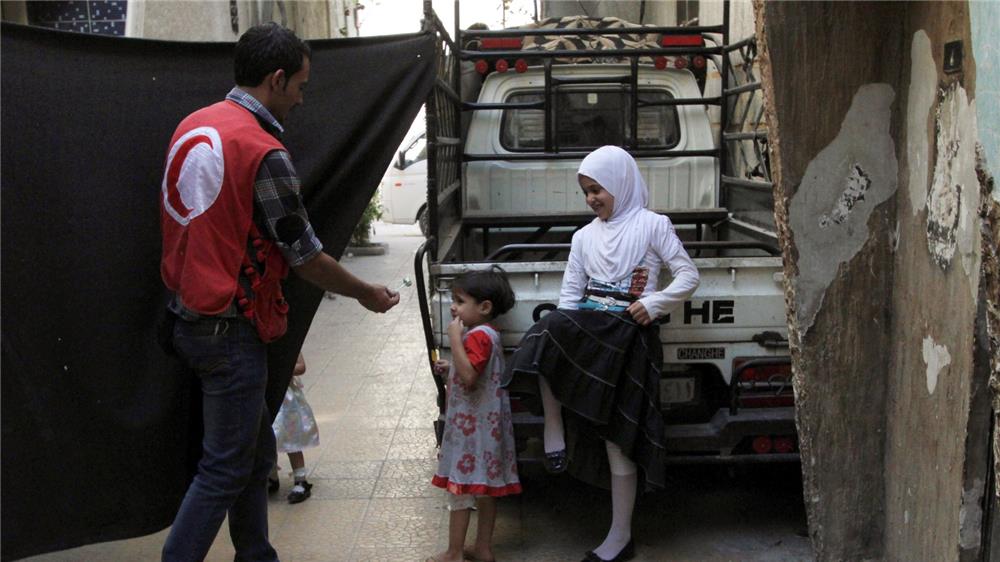
عضو في الهلال الأحمر السوري يوزع حلويات على فتاة ثاني أيام عيد الأضحى في دوما السورية. 5 أكتوبر/تشرين الأول 2014. تصوير محمد بدرة. رويترز.
الصورة في عُرف مصور صحفي كـ"بدرة" تتخذ مكان القلم بالنسبة للصحفي، وهو يبدع في اختيار القصة التي يريد روايتها وعرضها واختيار مواضيعه وأبطاله وتفاصيل الحدث. في منشوراته العامة على فيسبوك إحدى القصص التي رواها بقلمه هذه المرة وهي لا تختلف في أبعادها الحقيقة والإنسانية عن قصصه المصورة.
"الصمت يسود أرجاء المدينة، والخوف قطّع أوصالها، وحدها انفجارات الصواريخ العنقودية فوقنا كانت ما نسمع، كان أبو صبحي في منزله القديم، ثوانٍ قليلة كانت تفصل انفجار القنابل عن نيرانٍ تأكل المنزل حجراً حجر، ركض الجميع، ركض أبو صبحي ليطفئ منزله بأكواب الماء المكسورة، جاءت سيارات الإطفاء، وطلَبت من أبي صبحي أن يتنحّى جانباً، وبدأوا بإخماد المنزل!في لحظةٍ من اللحظات، دخل أبو صبحي بين النيران ليتفقد بيته المحترق، ليخرجه رجال الإنقاذ بعدها.. بعد عدة دقائق، عمَّ الدخان أرجاء المكان، لنلمح خيال رجلٍ يقف أمام إحدى الغرف التي لمّا تُخمد نيرانها بعد. كان أبو صبحي.. ظل أبو صبحي بداخل المنزل أثناء احتراقه حتى أُخمد كل شيء. كان أبو صبحي يقول بكل مرةٍ يطلب منه الخروج، كيف تخرجني من بيتي؟ كيف أترك بيتي بأشد لحظاته احتراقاً؟"
